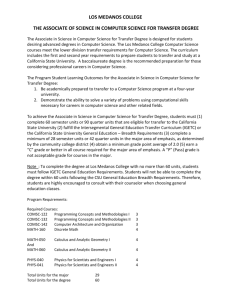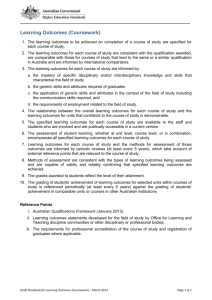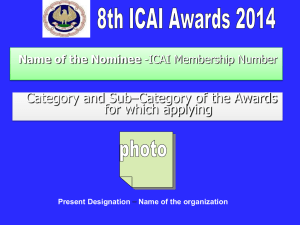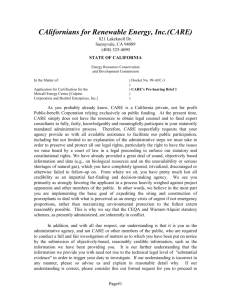In the universities of the Medieval world, the baccalaureate or
advertisement
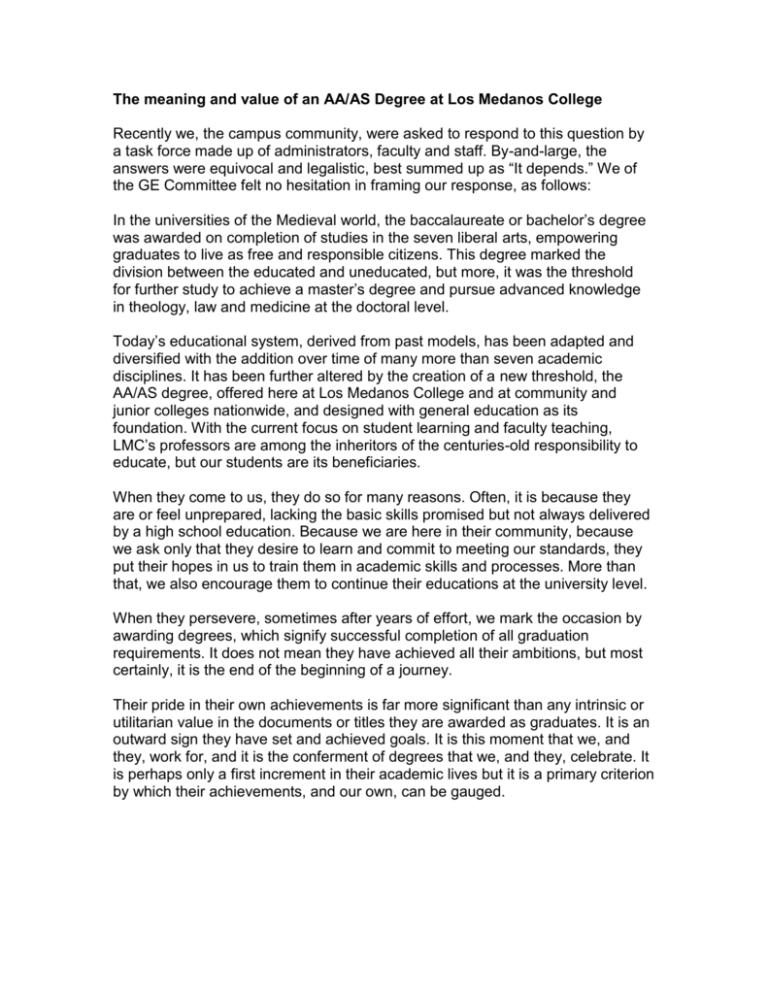
The meaning and value of an AA/AS Degree at Los Medanos College Recently we, the campus community, were asked to respond to this question by a task force made up of administrators, faculty and staff. By-and-large, the answers were equivocal and legalistic, best summed up as “It depends.” We of the GE Committee felt no hesitation in framing our response, as follows: In the universities of the Medieval world, the baccalaureate or bachelor’s degree was awarded on completion of studies in the seven liberal arts, empowering graduates to live as free and responsible citizens. This degree marked the division between the educated and uneducated, but more, it was the threshold for further study to achieve a master’s degree and pursue advanced knowledge in theology, law and medicine at the doctoral level. Today’s educational system, derived from past models, has been adapted and diversified with the addition over time of many more than seven academic disciplines. It has been further altered by the creation of a new threshold, the AA/AS degree, offered here at Los Medanos College and at community and junior colleges nationwide, and designed with general education as its foundation. With the current focus on student learning and faculty teaching, LMC’s professors are among the inheritors of the centuries-old responsibility to educate, but our students are its beneficiaries. When they come to us, they do so for many reasons. Often, it is because they are or feel unprepared, lacking the basic skills promised but not always delivered by a high school education. Because we are here in their community, because we ask only that they desire to learn and commit to meeting our standards, they put their hopes in us to train them in academic skills and processes. More than that, we also encourage them to continue their educations at the university level. When they persevere, sometimes after years of effort, we mark the occasion by awarding degrees, which signify successful completion of all graduation requirements. It does not mean they have achieved all their ambitions, but most certainly, it is the end of the beginning of a journey. Their pride in their own achievements is far more significant than any intrinsic or utilitarian value in the documents or titles they are awarded as graduates. It is an outward sign they have set and achieved goals. It is this moment that we, and they, work for, and it is the conferment of degrees that we, and they, celebrate. It is perhaps only a first increment in their academic lives but it is a primary criterion by which their achievements, and our own, can be gauged.
